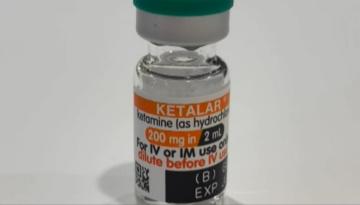The number of people suffering from "ketamine bladder" is increasing in Aotearoa as more Kiwis use the drug recreationally.
A new article in the New Zealand Medical Journal, which was published on Friday, said the number of people suffering from bladder damage as a result of taking the drug is on the rise.
The paper, by Christchurch Hospital urology registrar Daniel Eaton and urologist Frank Kueppers, noted ketamine is used across medicine as an anesthesia, for pain relief and in a new trial for treatment-resistant depression. However, Eaton and Keuppers said ketamine is only used for short-term medical treatment meaning its long-term effects are relatively unknown.
But as recreational ketamine usage increases in Aotearoa, physicians are seeing several concerning side effects in recreational users such as ketamine bladder syndrome.
Ketamine bladder is when the bladder is inflamed and damaged from using the drug. While it's still largely unknown why ketamine can cause bladder problems, one hypothesis is that the drug causes damage when it is excreted in the urine.
People suffering from ketamine bladder often need to urinate frequently, struggle to control their bladder and may experience pain and discomfort.
The paper noted recreational ketamine use is increasing in New Zealand with seizures at the border increasing from 0.15kg in 2016 to 22kg in 2021.
Know Your Stuff also says it's coming across more of the drug at its testing sites at music festivals.
"Overall, these reports do suggest a serious and significant increase of recreational ketamine use in New Zealand. However, clearly, data remains limited, and more objective monitoring of ketamine use is required," Eaton and Kueppers wrote.
Ketamine bladder is a relatively new issue with the first case being reported in 2007, according to the paper.
The paper said while there is currently no standard approach to dealing with ketamine bladder, for early cases stopping using the drug can fix the issues and prevent irreversible damage.
However, more severe cases may never recover even if they stop using the drug, highlighting the importance of early diagnosis.


